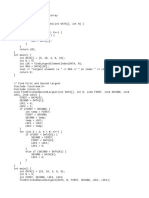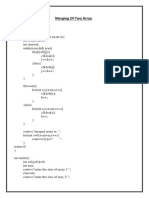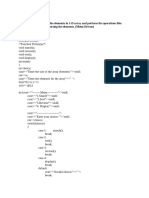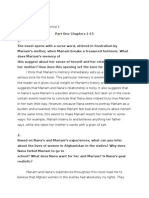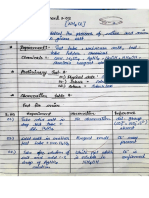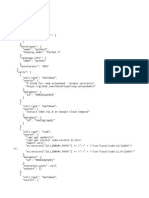0% found this document useful (0 votes)
45 views14 pagesArray Solutions
The documents demonstrate how to perform various operations on arrays in C++, including taking user input, traversing arrays, and calculating properties of array elements like sums and differences.
Uploaded by
Satwik NaskarCopyright
© © All Rights Reserved
We take content rights seriously. If you suspect this is your content, claim it here.
Available Formats
Download as PDF, TXT or read online on Scribd
0% found this document useful (0 votes)
45 views14 pagesArray Solutions
The documents demonstrate how to perform various operations on arrays in C++, including taking user input, traversing arrays, and calculating properties of array elements like sums and differences.
Uploaded by
Satwik NaskarCopyright
© © All Rights Reserved
We take content rights seriously. If you suspect this is your content, claim it here.
Available Formats
Download as PDF, TXT or read online on Scribd
/ 14





